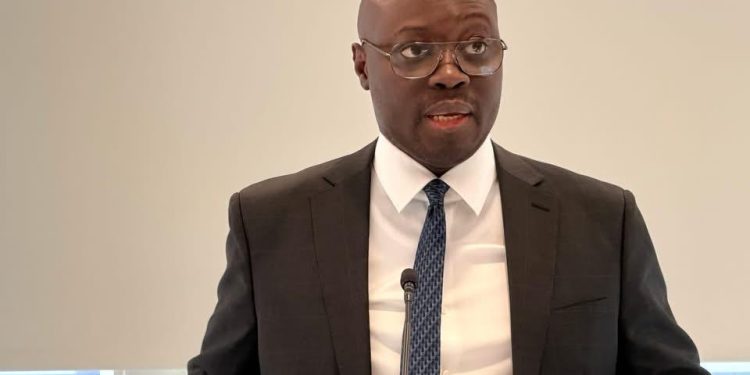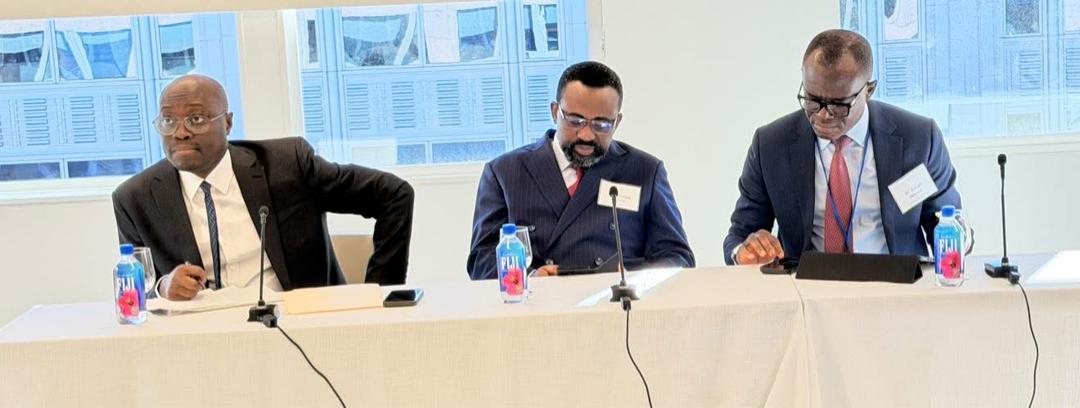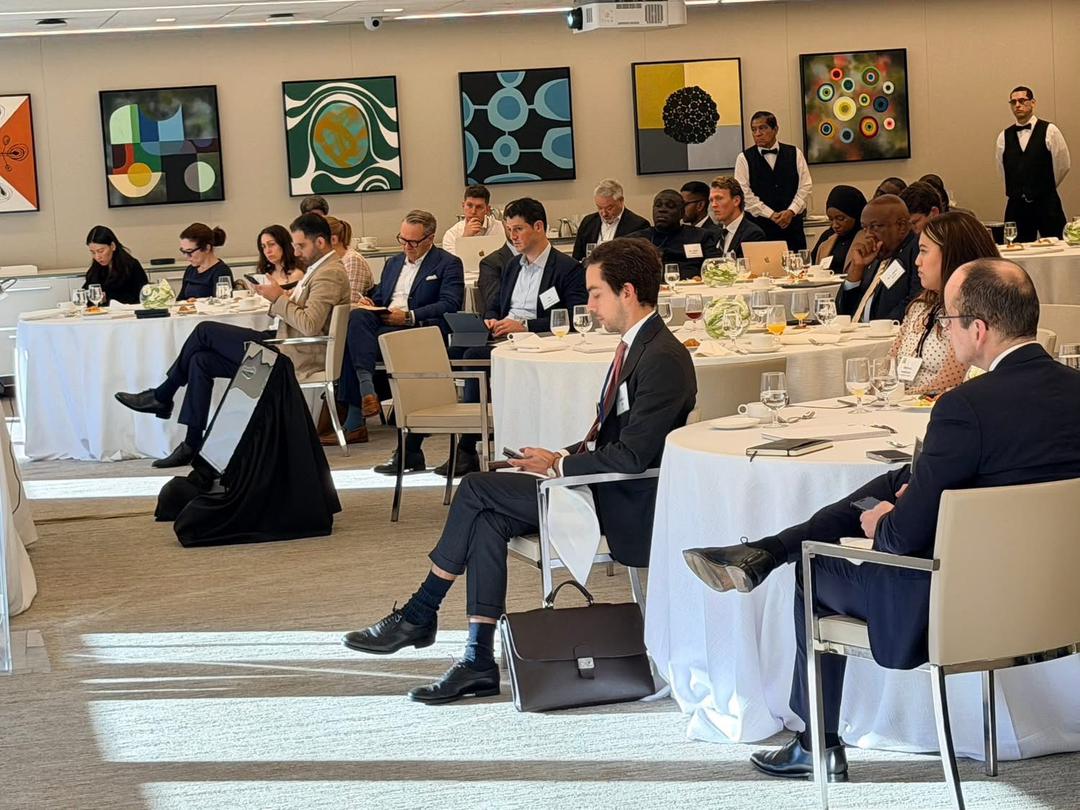- Ghana’s Economic Recovery on Track, Finance Minister Tells Global Investors
Ghana’s Finance Minister, Dr Cassiel Ato Forson, has told global investors that the West African nation’s economic recovery is no longer a matter of projection but one of measurable progress, underpinned by disciplined fiscal management, declining inflation, and renewed investor confidence.
Speaking at an investor forum on the sidelines of the 2025 IMF/World Bank Annual Meetings in Washington, D.C., Dr Cassiel Ato Forson declared that “Ghana is on track. We will sustain the gains,” as he sought to position the country as a credible destination for long-term capital and investment inflows.
According to the Minister, Ghana’s turnaround is visible in the macroeconomic data: public debt vulnerabilities have eased, fiscal discipline has been restored, and the cedi has stabilised after years of volatility. Inflation, which peaked at nearly 54 percent in early 2023, has been brought down to a single digit, and the government now targets to sustain the single-digit inflation beyond the end of 2025.
Dr Forson attributed this progress to a combination of fiscal consolidation, prudent expenditure controls, and structural reforms under the leadership of the administration and sticking to the targets as set in the 2025 budget. The government, he said, has not only achieved but is on course to sustain the achieved positive primary balance for this fiscal year, a critical indicator of fiscal health and a signal to investors of policy credibility.
“Ghana’s economic prospects remain bright,” he told participants. “We are not only stabilising; we are rebuilding confidence, improving productivity, and unlocking growth in the real sector.”
The message from Ghana’s Finance Minister comes at a pivotal time for the country’s engagement with the international financial community. Having completed the fifth IMF programme review, Ghana is now preparing the groundwork for a potential re-entry into international capital markets, a step that would mark a major milestone in its post-debt-restructuring journey.
Market watchers note that investor sentiment toward Ghana has improved markedly since early 2025, as the nation concluded its external debt restructuring with bondholders. The restructuring, combined with fiscal prudence, has eased liquidity pressures and improved Ghana’s risk profile among frontier-market investors.
Beyond macroeconomic stability, Dr. Forson emphasized that the government’s focus is now shifting toward inclusive and sustainable growth. Efforts are being made to stimulate the real sector, particularly agriculture, manufacturing, and digital services, to drive employment and reduce import dependence.
“We are rebuilding the foundations of resilience,” he said, adding that fiscal prudence will continue to anchor growth. “Our reforms are not temporary fixes; they are part of a broader transformation agenda to ensure stability and competitiveness.”
With inflation decelerating, the currency steady, and growth forecast to accelerate in the fourth quarter, Ghana appears to be emerging from the turbulence of the past three years. The next phase, observers say, will test the government’s ability to translate macro stability into real sector dynamism and crowd in private investment.
For global investors in Washington, Dr. Forson’s message was clear: Ghana is ready to do business again. “We will sustain the gains,” he reaffirmed, a declaration that resonated as both a commitment and a challenge, signalling a new phase of cautious optimism for one of Africa’s most closely watched reform stories.
NorvanReports is on the ground in Washington, D.C., covering Ghana’s engagements at the 2025 IMF/World Bank Annual Meetings. Stay with us for exclusive analysis and insights on the country’s economic trajectory and policy outlook.










